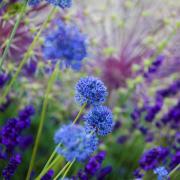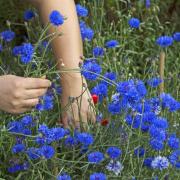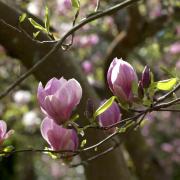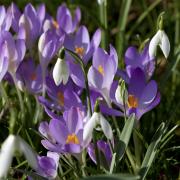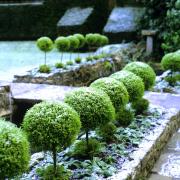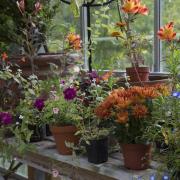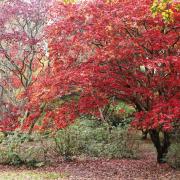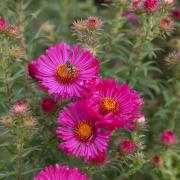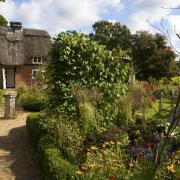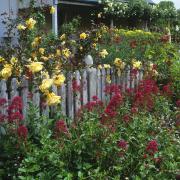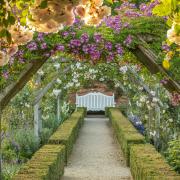With the economic climate still a challenge, here are 10 budget
ideas to keep your garden blooming through 2011
With the economic climate still a challenge, here are 10 budget ideas to keep your garden blooming through 2011
Grow from seedPay a fraction of the cost for a multitude of plants – annuals, biennials and veg. Snuggle up on a cold January day to browse through seed catalogues and plan for the coming year. Check the seed packet for individual requirements, however here are some general guidelines. You will need small clean pots or seed trays, sow into dampened flattened compost, some will need certain conditions to germinate, water as needed, transplant into larger pots, harden off then plant outside.
Bargain plantsKeep an eye out for healthy, discounted plants at the end of seasons, buy plants without flowers, buy mini-sized pots of quick growing plants. As well as nurseries and garden centres keep an eye out for local village open garden days and NGS gardens as many have plant stalls and you have the added advantage of advice from the garden owner who grew them.
Right plant, right placeWork with your microclimate and soil conditions, see what does well locally. Select plants that suit your garden areas, such as being able to withstand damp and cold, frosts or being drought tolerant. Include plants that will bloom at the time you are most frequently there to enjoy them and have added features, maybe perfume in the evenings to accompany summer dining. Work with nature to get the best results.Propagate your ownMany plants are easy to grow from cuttings, division or self-seed. Ask neighbours and friends if you can take some cuttings. Most tender plants strike easily from cuttings. Choose the best technique for the plant you want to propagate, do it at the optimum time of the year, use good hygiene practices, follow the procedure carefully and you will soon generate new plants.
Plant swapSwap surplus seeds or seedlings or club together with friends and buy bulbs in bulk. Often you only need to sow a fraction of the seeds in a packet. You may like to store the rest and use the following year or it may be preferable to swap for another plant you may fancy.
Make your own compostUse garden and kitchen waste for free organic matter for your garden. A good compost heap will become a valuable soil conditioner. Decomposition will take place best in a homemade or bought compost bin that will allow air and retain moisture.
WateringCollect rainwater and mulch plants well. Garden with sustainable principles, encourage wildlife and conserve natural resources such as water for a balanced, healthy ecosystem.
RecyclingAll kinds of household things can be re-used with a little ingenuity – for containers or sculptural focal points. Grow some bamboo or willows and use the stems for stakes and hurdles. Prunings of any twiggy branches can be used to support climbing vegetables and annuals. Washed yoghurt pots, with added drainage holes, could become small flowerpots. Plastic fruit trays with lids could be used as propagators. Timber pallets and crates could be turned into compost bins or cold frames. Even old shoes or leaky Wellingtons could become quirky containers. Old jumpers could be used as fleeces or line hanging baskets. The possibilities are endless.
Best valueEvergreens and plants that give a long season of interest – flowers, berries, foliage colour – form the backbone of the garden and are good long-term investments. Fill in with hardy perennials rather than expensive bedding plants. Some plants have more prolific flowers over a longer time, are enthusiastic growers each year, therefore offering great value.
Advice for freeApart from the wealth of gardening books at your local library, here are some websites to try. www.rhs.org.uk, www.bbc.co.uk, www.which.co.uk, www.crocus.co.uk, www.thegardeningwebsite.com, www.gardenorganic.org.uk, www.gardenadvice.co.uk, www.kew.org.uk, http://www.gardeningexpress.co.uk/
Words and photos by Leigh Clapp



